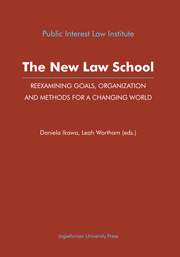Book contents
- Frontmatter
- Contents
- Preface
- Acknowledgments
- Introduction
- Part One Goals of Legal Education
- Part Two Law School Governance
- Part Three Optimal Academic Curricula and Teaching Methods
- Part Four The Academic Career in Law
- Chapter 7 The Challenges of the Mass University and the Civil Law Country Model of Legal Education: How Open Is the Polish University Model to Innovative Teaching and Nurturing of Clinical Programs?
- Chapter 8 Croatian Legal Education Reform at the Crossroads: Preparing the Modern Lawyer
- Chapter 9 The Need for a New Law Professor in Moldova
- Chapter 10 Some Aspects of Academic Legal Careers in Georgia
- Appendix
Chapter 10 - Some Aspects of Academic Legal Careers in Georgia
from Part Four - The Academic Career in Law
Published online by Cambridge University Press: 05 September 2014
- Frontmatter
- Contents
- Preface
- Acknowledgments
- Introduction
- Part One Goals of Legal Education
- Part Two Law School Governance
- Part Three Optimal Academic Curricula and Teaching Methods
- Part Four The Academic Career in Law
- Chapter 7 The Challenges of the Mass University and the Civil Law Country Model of Legal Education: How Open Is the Polish University Model to Innovative Teaching and Nurturing of Clinical Programs?
- Chapter 8 Croatian Legal Education Reform at the Crossroads: Preparing the Modern Lawyer
- Chapter 9 The Need for a New Law Professor in Moldova
- Chapter 10 Some Aspects of Academic Legal Careers in Georgia
- Appendix
Summary
Introduction
The Georgian system of higher education was essentially reformed with the enactment of the Georgian Law on Higher Education (hereinafter, the Law on Higher Education) on December 12, 2004. The law in question covered all key aspects of university level education. At the time of the adoption of the Law on Higher Education, Georgia was not yet a participating country in the Bologna process. Still, the drafters of the legal act took a very close look at the Bologna instruments and created a higher educational system that was to a considerable extent in compliance with the main requirements of those instruments.
There is a vast range of issues that have been addressed by the fundamental reforms derived from the Law on Higher Education. Without exaggerating, it can be asserted that these reforms have affected all departments of every institution of higher education in Georgia, though with varying degrees of intensity. One of the most reform-devoted universities has proved to be the Ivane Javakhishvili Tbilisi State University (TSU). Within the university itself, the Law Faculty has become a leader and promoter of reforms, setting an example for organized and in-depth reform for law schools countrywide. In fact, TSU has become a “center of excellence” in this regard.
The reform carried out by the TSU Law Faculty was a complex and far-reaching undertaking, focusing on the essential aspects of legal education.
- Type
- Chapter
- Information
- The New Law SchoolReexamining Goals, Organization and Methods for a Changing World, pp. 103 - 112Publisher: Jagiellonian University PressPrint publication year: 2010



